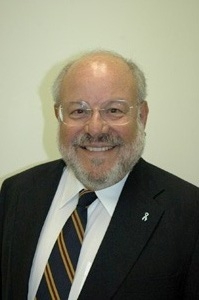The disdain of much of the cruise ship industry for safety (as well as labor and environmental) laws is signaled by flags that fly on the stern of more than half of cruise ships. They are called "flags of convenience."
Some 60 percent of cruise ships are now registered in Panama, Liberia and the Bahamas. By doing this--by obtaining "flags of convenience" from these and other countries--ship owners can avoid the laws of the nation from which they actually operate and take advantage of weak safety, labor and environmental standards.
The Costa Concordia and the other Costa ships are registered in Italy, although for years Costa ships flew the "flag of convenience" of Panama. Most of the other 100 ships of Costa's owner, Florida-headquartered Carnival Corporation., sail, however, under "flags of convenience" of Panama and the Bahamas.
There has been sharp criticism through the years of this practice.
"Maritime lawlessness isn't confined to pirates. Thanks to a system of ship registration called "flags of convenience,' it is all too easy for unscrupulous ship owners to get away with criminal behavior," wrote Rose George in an op-ed piece in the New York Times last year. http://www.nytimes.com/2011/04/25/opinion/25george.html "They have evaded prosecution for environmental damage like oil spills, as well as poor labor conditions, forcing crews to work like slaves without adequate pay or rest. But unlike piracy, which seems intractable, the appalling conditions on some merchant ships could be stopped."
It used to be that ships flew the flag of the nation where they were from--and abided by its laws. "A ship is considered the territory of the country in which it is registered," noted S.J. Tomlinson in a 2007 essay in the Villanova Sports and Entertainment Law Journal.
It was in the U.S. in the 1920s that the practice of registering ships in foreign nations began. Ship owners were frustrated by increased regulation and rising labor costs and also were seeking a way around Prohibition. Panama was an early haven. Liberia later became popular.
And the Bahamas later joined in. Other nations now involved include the Marshall Islands.
Indeed, the Deepwater Horizon oil rig at which an explosion in 2010 killed 11 crewmen and set off the massive Gulf of Mexico oil spill was registered in the Marshall Islands. It was considered to be a vessel requiring a national flag.
Many of these nations that provide "flags of convenience" at a price "lack the capacity or will to monitor the safety and working conditions on ships or to investigate accidents," said George. "Instead, ship safety certificates are given out by private classification societies. Owners are allowed to choose which society they want--and the worst predictably choose the least demanding, This self-policing has been compared to registering a car in Bali so you can drive it in Australia with faulty brakes."
Stated M.J. Wing in a 2003 essay in the Tulane Maritime Law Journal: "Those nations whose open registries have become the most popular also tend to be those who possess the most lax labor, safety, and environmental codes."
CBS News travel editor Peter Greenberg, believes that "when you have a ship that's home-ported in the United States, U.S. law should prevail." There needs to be a change of law, he said. http://www.cbsnews.com/stories/2010/11/13/earlyshow/saturday/main7051406.shtml
He made the comment after a 2010 fire aboard the Carnival Splendor which left 4,500 passengers and crew stranded at sea. The National Transportation Safety Board had said it would lead the investigation into what happened, but Carnival argued that the U.S. didn't have jurisdiction because the ship was registered in Panama.
"With all due respect to the Panamanian authorities," commented Greenberg. "I have not seen a show called "CSI Panama' lately. I really want guys who know what they're doing, who really live this work, to do the investigation."
What began in the 1920s has now become a maritime industry norm. Meanwhile, the cruise industry has been exploding--growing at a rate as high as 7 percent annually in recent years. Ships have grown to be humongous. Oasis of the Seas, a ship of Florida-headquartered Royal Caribbean International, which went into service in 2009, can carry more than 6,000 passengers. It's a model for other megaships. And the gargantuan floating hotel is registered in the Bahamas.
Carnival Corporation proudly announced last April that it had added its "100 th cruise ship to its fleet with the delivery of the Carnival Magic. It can carry more than 5,400 passengers. It is registered in Panama. Carnival described itself as "a global cruise company and one of the largest vacation companies in the world. Our portfolio of leading cruise brands includes Carnival Cruise Lines, Holland America Line, Princess Cruises and Seabourn"P&O Cruises"Cunard Line"AIDA"Costa Cruises"and Iberocruceros."
(Note: You can view every article as one long page if you sign up as an Advocate Member, or higher).





